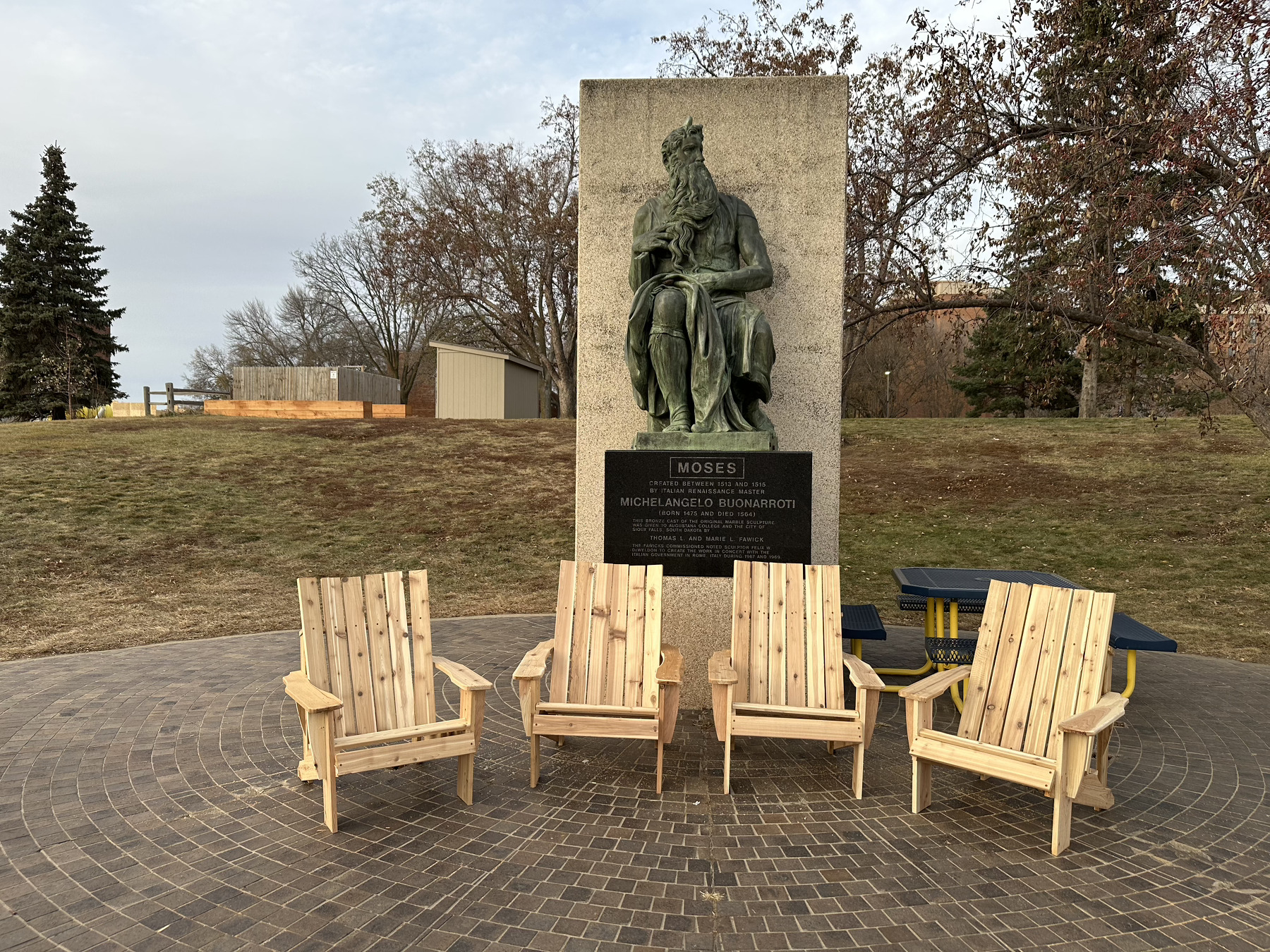The Kids Are Alright
Today I had one of the best days of teaching I’ve had in a long time. I’m worn out and poorer, but what a great day.
This morning the weather was warm and sunny so my environmental philosophy class met outside and many of the students had short sleeves even though it’s the middle of November. We try to meet outside every day, but some days are a challenge. Today we heard term paper presentations about parasitism, west African birds, and land rights. Each paper was thoughtful and thought-provoking, and it made me glad to sit there and listen as the students spoke.
Right after that I helped our Registrar with her FYS class' required service project. I spent hours this week cutting cedar planks to the right size and shape to make four Adirondack chairs. Today I brought all the lumber and a carload of tools and taught the students how to build the chairs. For most of them it was their first time doing anything like that. There’s something very satisfying about learning how to build something new with your own two hands. And as Matthew Crawford pointed out in his book Shop Class As Soulcraft, learning how to use tools is an important part of a liberal education.
Next I dashed off to buy pizza for a midterm exam. Yeah, you read that right. My ancient and medieval philosophy class put Socrates on trial earlier this semester and I promised them a meal together as a treat after the trial went so well. I redesigned the midterm exam to be a symposium, i.e. a dinner party. Here’s the idea: I gave them a question to consider (Why does Aristotle write about God in Book Lambda of his Metaphysics?) and allowed them to research it, to research related topics in the other philosophers we have read, and then to come to class with books, notes, and ideas. We sat down at a table together and served the pizza, then we opened the floor with that question. I kept a “conversation map,” and the students knew that the aim was not really to answer the question but to talk about what the question opened up. And another aim was to make sure everyone participated in the conversation. By the end of the hour, most of the pizza was gone (we got good pizza, and it wasn’t cheap when the professor pays out of pocket, but it was worth it) and everyone in the class–including the ones who are usually quiet–had talked about the topic in a way that helped others to think more clearly. After class one student came up to me and said she wished there were more classes like that where we can talk about big ideas (God, for instance!) without fear of offending or being canceled. I think the pizza helped, and so did the ground rules (try to include others, don’t pontificate or grandstand, questions are better than flat answers, open-ended questions are better than ones that invite a single word in reply, etc). But really, the students get credit for being amazing interlocutors, and for caring for one another.
My last class of the day is How To Live Well. We’ve been discussing Augustine’s Confessions, and I’ve also been peppering the class discussions with bits and pieces of other great philosophical texts from around the world. Again, the students were attentive, they asked good questions, and they seemed to care for one another. Not quite a lecture, and not quite a seminar, that class is a little Socratic and mostly me just trying to introduce them to big ideas that might help them examine their own lives and to care for others better.
I went back to my office after that and spent the next hour and a half talking to a stream of students who want to do practical things to make the world better. They have ideas, and they need a little guidance, maybe an advisor for a project or a mentor. Those conversations are soul-filling, especially knowing that what these students begin they are likely to carry onwards.
So here I am at home, typing up a record of the day. My back is tired from carrying lumber and my knees are a bit worn from kneeling on the pavement while we assembled the chairs. I often wish I had a budget to help pay for the tools or lumber, or to pay for pizza, or to fund the projects the students want to begin. For now I remind myself: we don’t have much, but we have enough. And that’s not a bad place to be. The students are alright, and it’s a joy to spend my day working and thinking and talking with them, and watching them blossom and flourish.
